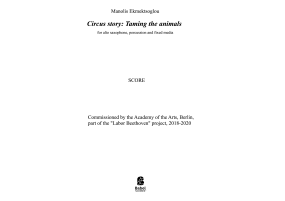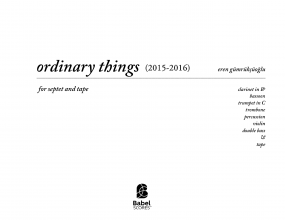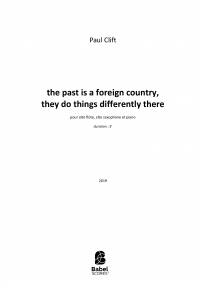I sing the body electric
ISMN : 979-0-2325-6842-3
- Login to create your own lists
The initial idea sprung from the possibility to compose a musical dramaturgy that could explore the physical tension between the body of the instrument and that of the musician. I was intrigued by the possibility that Florentin Ginot could discover an unheard voice of the instrument, by detuning dynamically the strings, creating new acoustic relationships that would also correspond to a shifting in the space. I had been extensively exploring these possibilities already in some of my previous instrumental pieces, as well as in electroacoustic works, by delving deeply the implications of the relationship between harmonic and inharmonic spectra : more specifically I had been working with sound processing like transposition, frequency shift, frequency modulation, phasing, foldover, granulation, combined with additive synthesis, treating sound files as if they were oscillators and viceversa. This led to a rich palette of possibilities to understand the behaviour of the vibrato, tremolo, beatings etc. conferring an instrumental behaviour to synthesised sounds and preserving the human-like behaviour and organic spectra also in the transformations of the sound files.
In I sing the body electric, the listener is guided through a research for an inner balance between the electronics and the instrumental part, which becomes the formal process and dramaturgy of the piece. The promises implied in their sonic and physical desires - and determined by these relationships - evolve, shaping a process of spatial transformation, where the actions of deformation, distortion and enhancement are brought to the ears of the listener, with the powerful poetic reference to the title of Walt Whitman’s poem I Sing The Body Electric.
The electronics project the listener in a space that changes according to the relationship and the actions operated by the musician directly on the body of the instrument, until we are suddenly brought into an immersive, ever-changing and unpredictable space, reacting in real-time, according to the spectral changes of the sound of the double bass. In order to attain this result there is a transition from an 8ch tape towards a live-electronic treatment, controlled in real-time by a performer
Pages - 36








